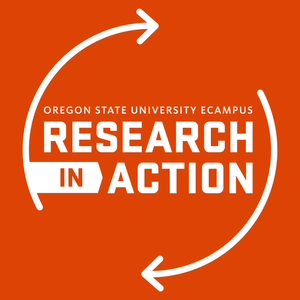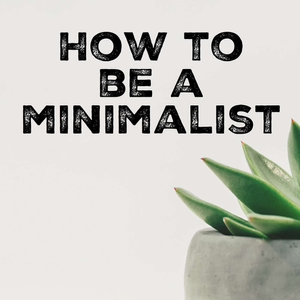
S3E2 - How Could We? Centre justice at a time of crisis and confusion
11/08/23 • 36 min
Inspired by conversations we had with experts about the climate emergency, in Season 3 of How Could We? we’re digging into three themes that occupy the minds of many people in the climate change community - Climate Narratives, Confusion & Crisis and Radical Collaboration.
In this episode, we talk to Tonny Nowshin, a Bangladeshi economist currently based in Berlin. Tonny is also a degrowth and climate justice advocate, who focuses on centring the concept of justice in the climate movement.
In this wide-ranging conversation, Tonny talks about how the economic theory driving global decision-making disregards planetary boundaries, as well as her work with The Sunrise Project, which is trying to move investments away from fossil fuels.
Tonny also discussed the role of degrowth as a transformative solution for climate change - and other crises - the importance of creating accountability before a crisis hits and how Buddhist peace activist Thích Nhất Hạnh has inspired her life and her work - in the episode, we mention the Plum Village monastic community which he founded.
If you're interested in these topics, join us for our next Open Dialogue: Redefining Development Funding on November 22.
This episode was presented by Anne-Sophie Garrigou & Stephanie Klotz and produced by Bárbara Mendes-Jorge.
Listen to our previous episodes - Season 1 focused on Sustainable Forestry and Land Use, while Season 2 explored the New European Bauhaus initiative.
EIT Climate-KIC is Europe’s leading climate innovation initiative, aiming to accelerate the transition to a zero-carbon, climate-resilient society by supporting innovative solutions helping society mitigate and adapt to climate change.
We want to hear from you! Share what inspires you and what you’re doing in your community to enact change by sending us an email to [email protected].
Visit our website – www.climate-kic.org
Inspired by conversations we had with experts about the climate emergency, in Season 3 of How Could We? we’re digging into three themes that occupy the minds of many people in the climate change community - Climate Narratives, Confusion & Crisis and Radical Collaboration.
In this episode, we talk to Tonny Nowshin, a Bangladeshi economist currently based in Berlin. Tonny is also a degrowth and climate justice advocate, who focuses on centring the concept of justice in the climate movement.
In this wide-ranging conversation, Tonny talks about how the economic theory driving global decision-making disregards planetary boundaries, as well as her work with The Sunrise Project, which is trying to move investments away from fossil fuels.
Tonny also discussed the role of degrowth as a transformative solution for climate change - and other crises - the importance of creating accountability before a crisis hits and how Buddhist peace activist Thích Nhất Hạnh has inspired her life and her work - in the episode, we mention the Plum Village monastic community which he founded.
If you're interested in these topics, join us for our next Open Dialogue: Redefining Development Funding on November 22.
This episode was presented by Anne-Sophie Garrigou & Stephanie Klotz and produced by Bárbara Mendes-Jorge.
Listen to our previous episodes - Season 1 focused on Sustainable Forestry and Land Use, while Season 2 explored the New European Bauhaus initiative.
EIT Climate-KIC is Europe’s leading climate innovation initiative, aiming to accelerate the transition to a zero-carbon, climate-resilient society by supporting innovative solutions helping society mitigate and adapt to climate change.
We want to hear from you! Share what inspires you and what you’re doing in your community to enact change by sending us an email to [email protected].
Visit our website – www.climate-kic.org
Previous Episode

S3E1 - How Could We? Use art to reinvigorate the climate movement
Welcome back to season 3 of How Could We?, a podcast by EIT Climate-KIC.
Inspired by conversations we had with experts about the climate emergency, this season we’re digging into three themes that occupy the minds of many people in the climate change community: Climate Narratives, Confusion & Crisis and Radical Collaboration.
In this first episode, we talk to Neha Misra, a storyteller, climate justice advocate and a visual artist. We ask Neha how we can build stories of a future worth living in, talk about how art helps us tell the story of climate change, and discuss the importance of including - and valuing - the work of artists and diverse voices.
In this incredible interview, Neha thoughtfully shares her experiences and sources of inspiration. She says, “it is not ironic that we’re living in a burning world with burnout human beings' '.
We especially recommend listening to the end of the episode, as Neha shares her beautiful, eye-watering poem, “Enough”.
Check out Neha’s website and find out more about her work, including at The OpEd Project and Remote Energy.
In this episode, Neha also mentions:
- Design Science Studio
- The Public Voices Fellowship on the Climate Crisis
- The Center for Environmental Justice at the Smithsonian’s Anacostia Community Museum
- The Women’s Environmental Leadership Summit 2023
- To Live and Breathe: Women and Environmental Justice in Washington, D.C.
- The Climate Burnout Report 2023
- The IPCC Report on Climate Colonialism
This episode was presented by Anne-Sophie Garrigou & Stephanie Klotz and produced by Bárbara Mendes-Jorge.
If you’re interested in Sustainable Forestry and Land Use, check out Season 1. If you're interested in the New European Bauhaus initiative, check out Season 2.
EIT Climate-KIC is Europe’s leading climate innovation initiative, aiming to accelerate the transition to a zero-carbon, climate-resilient society by supporting innovative solutions helping society mitigate and adapt to climate change.
We want to hear from you! Share what inspires you and what you’re doing in your community to enact change by sending us an email to [email protected].
Visit our website – www.climate-kic.org
Next Episode

S3E3 - How Could We? Accelerate change with radical collaboration
Inspired by conversations we had with experts about the climate emergency, in Season 3 of How Could We? we’re digging into three themes that occupy the minds of many people in the climate change community - Climate Narratives, Confusion & Crisis and Radical Collaboration.
In this third episode - the season finale - we talk to Yiannis Chrysostomidis, Principal and Head of London Office at REOS Partners, a global organisation solving complex problems through the lens of radical collaboration. Yiannis' work supports changemakers to help shift the root causes of societal challenges, such as climate change.
In this episode, Yiannis discusses how talking about power can feel like a taboo subject, the importance of storytelling and understanding cultural differences when building coalitions, and how ‘network weavers’ - hidden actors who may not be considered typical power brokers - are key for enacting change.
Yiannis also outlines the key elements of REOS’ Radcal Climate Collaboration Guidebook and shares a few examples of some of the fascinating projects he’s worked on worldwide, including in Syria, South Africa and Mongolia.
This episode was presented by Anne-Sophie Garrigou & Stephanie Klotz and produced by Bárbara Mendes-Jorge.
Listen to our previous episodes - Season 1 focused on Sustainable Forestry and Land Use, while Season 2 explored the New European Bauhaus initiative.
We want to hear from you! Share what inspires you and what you’re doing in your community to enact change by sending us an email to [email protected].
Visit our website – www.climate-kic.org
If you like this episode you’ll love
Episode Comments
Generate a badge
Get a badge for your website that links back to this episode
<a href="https://goodpods.com/podcasts/how-could-we-315636/s3e2-how-could-we-centre-justice-at-a-time-of-crisis-and-confusion-45866176"> <img src="https://storage.googleapis.com/goodpods-images-bucket/badges/generic-badge-1.svg" alt="listen to s3e2 - how could we? centre justice at a time of crisis and confusion on goodpods" style="width: 225px" /> </a>
Copy




